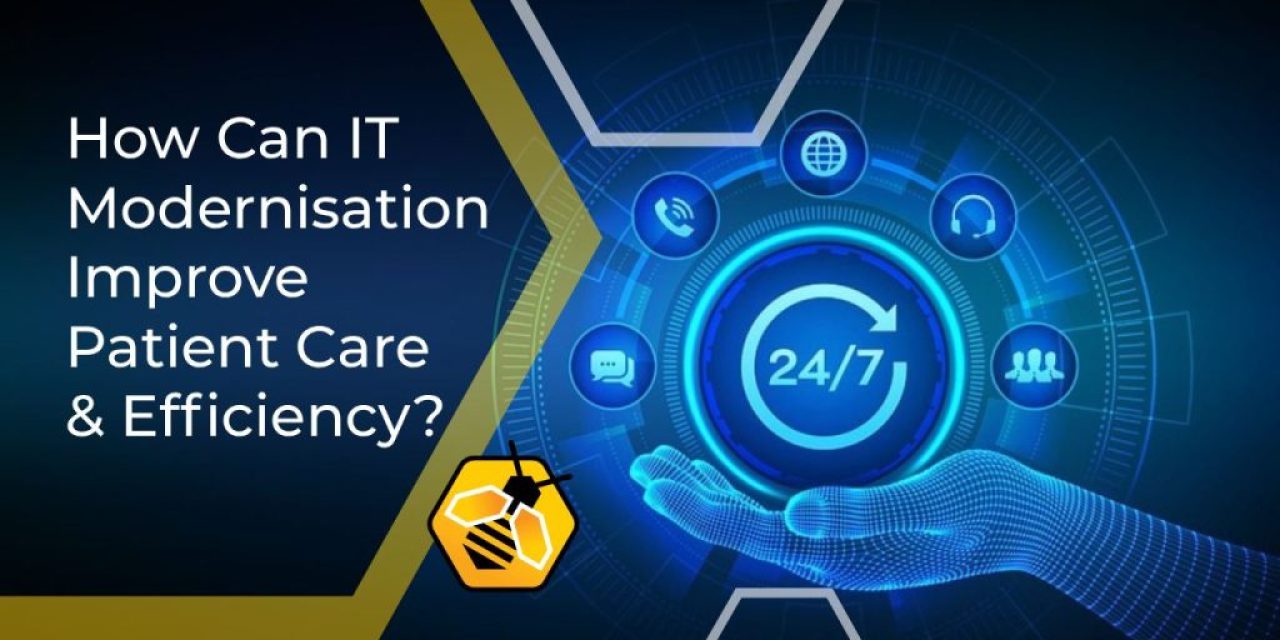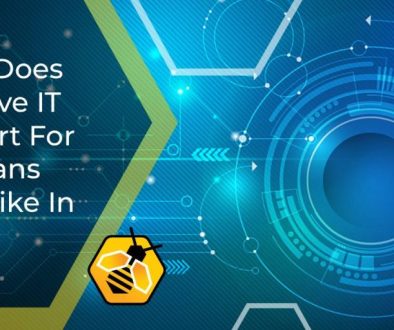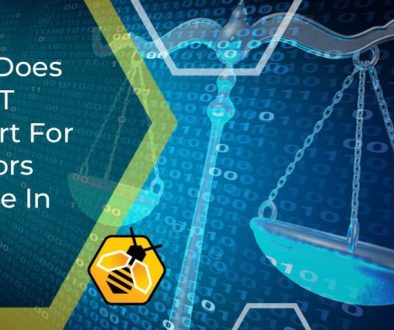How Can IT Modernisation Improve Patient Care & Efficiency?
The healthcare sector is under growing pressure to deliver better outcomes with limited resources. From care homes and hospices to private clinics and NHS suppliers, organisations are increasingly turning to technology to bridge that gap.
Modernising IT systems isn’t just about keeping up with the latest software; it’s about improving the way staff work, share information, and care for patients. So, what does modern IT support for healthcare look like, and how can it help both patients and professionals thrive?
Streamlining everyday tasks for staff
Many care homes and healthcare providers still rely on outdated systems or paper-based processes. These create unnecessary duplication, wasted time, and room for error. Modern IT systems, particularly cloud-based tools like Microsoft 365, can dramatically improve efficiency.
With secure access to files, calendars, and communication tools in one place, staff can update care plans, schedule appointments, or share notes instantly. For example, a nurse can record observations on a tablet and have them synced to the cloud in real time, so the next shift sees the latest information immediately.
This results in less time spent chasing paperwork or logging into multiple systems, and more time focused on residents and patients.
Improving communication and collaboration
Effective care depends on clear communication. Modern IT systems make it far easier for teams, whether they’re on the same site or spread across multiple locations, to stay connected. VoIP phone systems and unified communications platforms allow voice calls, video meetings, and instant messaging all under one secure roof.
This means care home managers can speak to remote staff or family members without juggling different devices or numbers. For organisations with multiple facilities, leased lines and managed networks ensure smooth communication between sites, avoiding the downtime or lag that can interrupt care delivery.
A reliable IT infrastructure helps teams work together seamlessly, which ultimately means faster responses, clearer handovers, and better outcomes for those receiving care.
Enhancing data security and compliance
Few sectors handle information as sensitive as healthcare. Patient and resident records must be stored, accessed, and shared securely to meet GDPR and NHS Digital standards. Yet many providers still operate with outdated security measures that leave them vulnerable to cyberattacks or accidental data breaches.
Solutions like Sophos firewalls and endpoint protection help block threats before they reach critical systems, while multi-factor authentication and encrypted cloud storage keep information secure even if devices are lost or stolen.
Patients and families want reassurance that their information is safe, and a well-secured IT infrastructure is a vital part of that promise.
Supporting smarter decision-making
When data is accessible and well-organised, it becomes a powerful decision-making tool. Modern systems allow care providers to collect, analyse, and act on information far more effectively.
This could mean tracking staff workloads to identify efficiency gaps, monitoring patient outcomes to improve care plans, or even predicting future needs using simple data analytics. Ultimately, better insights mean better care. IT modernisation turns data into a strategic asset, guiding improvements across both clinical and operational areas.
Enabling flexibility and resilience
The COVID-19 pandemic made it clear how important flexible technology is in healthcare. Modern IT infrastructure supports remote working, telemedicine, and secure access from any location.
For example, cloud-based systems allow doctors, nurses, and administrators to log in securely from home or between sites. In the event of disruption, whether that’s a cyber incident, a local lockdown, or simply staff absence, operations can continue with minimal downtime.
With backup and disaster recovery systems hosted in secure UK data centres, organisations can be confident that critical data and applications are always protected and recoverable.
Why partnering with the right IT provider matters
Modernising IT isn’t just about buying new hardware; it’s about understanding your organisation’s goals, compliance needs, and budget, and creating a solution that works for you.
A proactive Managed Service Provider can take on the responsibility for maintaining and securing your systems, ensuring uptime, and helping staff get the best from the technology they use every day. With dedicated IT support, you can move from firefighting problems to focusing on delivering exceptional care.




